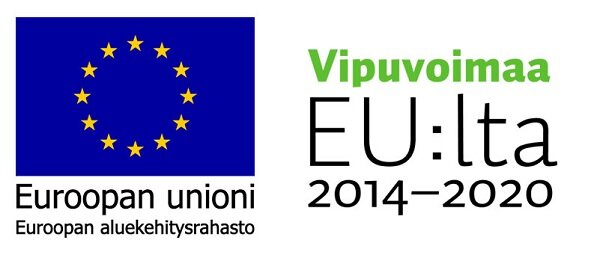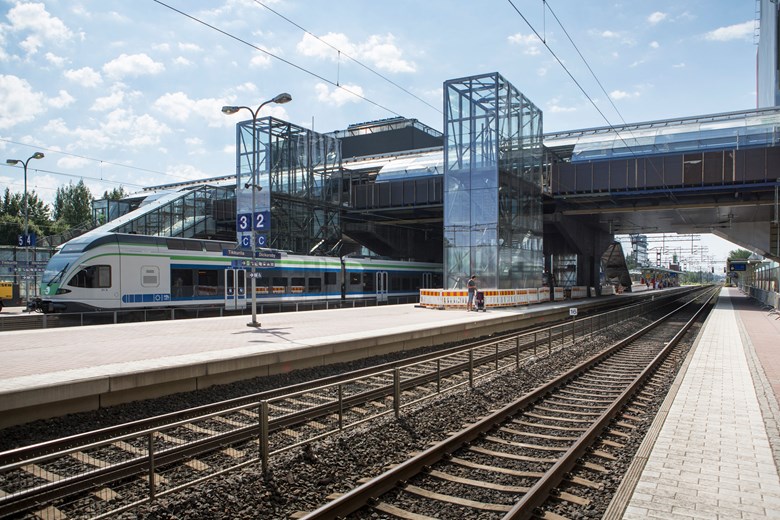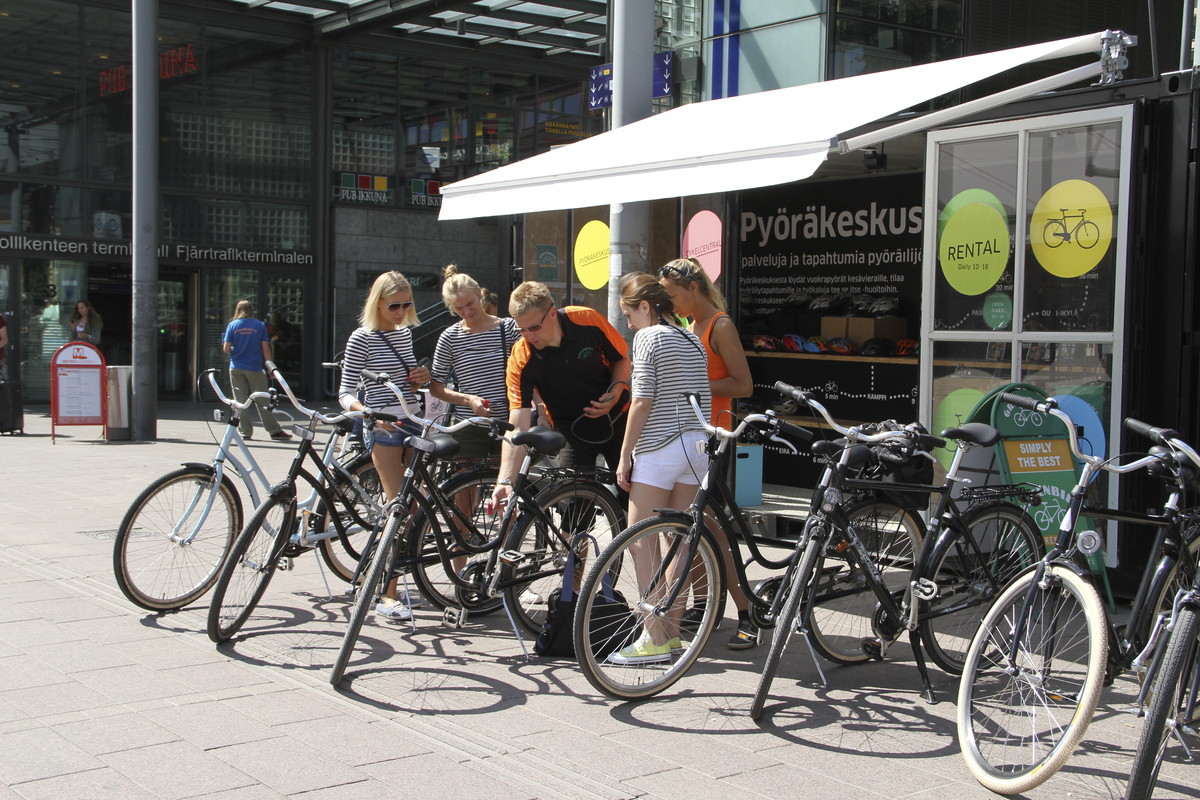
Smart Stations

Railway stations are transport nodes and thus play a key role in enabling low-carbon everyday life. Versatile station services increase the attractiveness of public transport and streamline the daily lives of city residents. Almost 70% of Finland’s climate emissions are generated as a result of consumer decisions and choices. The Smart Stations project supports the making of sustainable everyday choices.
Aiming at attractive station areas
The Smart Stations project is an ERDF-funded joint project for the development of low-carbon station areas. The aim of the project is to
- promote the implementation and scaling of low-carbon business in station areas;
- accelerate the emergence of new low-carbon solutions; and
- enable everyday solutions that promote low-carbon communities.
The Smart Stations project strives to bring companies and services to stations to support low-carbon trip chains. Smart Stations was implemented for the first time as a pilot in the spring of 2018, when an event transformed stations into pop-up spaces for climate-friendly products and services. The Smart Stations event made climate-smart choices available to try out where we move every day in the spring of 2019 as well. The event featured, for example, a household item lending service, mobile bicycle maintenance, as well as local and organic food operators. In the spring of 2020, the project is continuing development with a business development programme that involves growth companies and large partner companies building, in unison, new everyday services for station areas.

Project work packages
- Analysis of the needs and potential of low-carbon services in station areas
- Development and expansion of the Smart Stations concept and analysis of the field of operators in low-carbon services
- Smart Stations pop-up event 2019 Smart Stations business development programme 2020
- Station area innovation competition 2019
- Further development, scaling and internationalisation of new low-carbon services and business
- Communication and dissemination of results
- Project coordination
Project implementers
The main implementers of the project are Helsinki, Espoo, Vantaa, Hämeenlinna and Riihimäki. The project is being coordinated by HSY. The project is being implemented in cooperation with the station area development network. in addition to the Ministry of the Environment, this network includes the Finnish Transport Agency, HSL, the LHT Network, Growth Corridor Finland, Sitra, and several other operators.
The two-year project will run from 1 September 2018 to 31 August 2020.